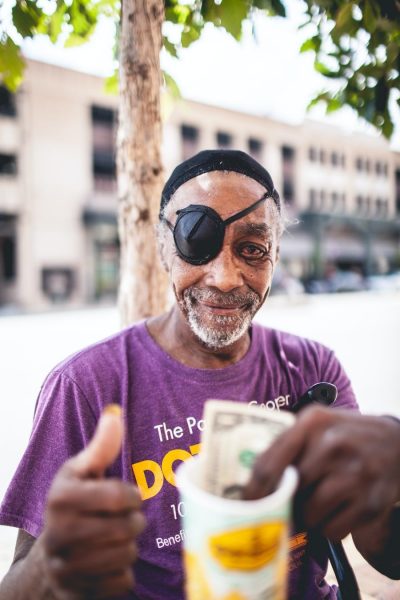How do I not pass judgement? 7 steps to being a better person.


By Antoine G Larosiliere
Many of us do it and don’t realize it, but we eventually must ask ourselves, how do I not pass judgement.
Do you sit there and labeI people and swear you know exactly what they’re about? Well, I have too; and I hate that I spent a good portion of my adult life judging others. If you’re wondering “how do I not pass judgement;” this article will help. To keep from being judgmental; you first have to realize why you are judging, realize how it affects others, take the time to get to know the person, accept who they are, put yourself in their shoes, focus on their good qualities, and find parallels in mistakes that you’ve made.
“We need to pay close attention to our actions, and accept that we are and have been judgmental.”
#1 Realize why you are judging.
Before we can begin to discover how to not pass judgement, we need to be honest with ourselves first. We need to pay close attention to our actions, and accept that we are and have been judgmental. To realize we are judging, we have to be able to see that…
- We have a limited view of the world.
- We have difficulty identifying someone’s belief system.
- Someone’s values aren’t clear to us.
- We believe our values are stronger than the other person’s.
- The person threatens how we perceive ourselves.
- We are jealous of who the other person is or what they have.
- We are projecting what’s more true of ourselves.
- We are biased at how we view the people around us.
- We are associating the person with our bad experiences.

#2 Realize how judging affects others.
The problem here isn’t that judging others affects others, we all know that’s the case. But for some reason the people who are doing the judging are often oblivious that they’ve hurt someone. I guess it’s because they assume the people they’re judging will never find out, but that’s hardly ever the case. The people being judged almost always seem to know. For some people, the ones who do the judging, also have their own self-esteem and happiness affected. These people who believe they’re good, will feel guilty and a degree of shame as well. Sometimes the people judging are our friends and family. One study shows “7 in 10 young people who have experienced a mental health problem say they have been discriminated against by friends.” Judging others also causes us to judge ourselves more harshly. Judging someone….
- Makes them feel criticised and demeaned.
- Makes them feel rejected and isolated.
- Makes them feel misunderstood
- Makes them feel ashamed of who they are or what they’ve done.
- Gives life to existing stereotypes
- Makes the person who’s judging feel guilty.
- Sets unrealistic expectations of beauty, spirituality, culture, and gender.

#3 Take time to get to know the person.
The most common reason why we pass judgment on one another, is because we don’t know the person, but we assume we do. Those assumptions become the judgements we make. It is very arrogant to assume you know something when you haven’t taken the time to study. That’s essentially what we’re doing when we judge people without taking the time to get to know them. Even though some of us come from similar backgrounds, or have similar features; our experiences are uniquely different. To get to know someone, we must…
- Have a conversation with the person regardless of their assumed background or association: Keep in mind, it sometimes may take more than a few conversations.
- Ask questions that may reveal events from their past.
- Take nothing they say personally.
- Don’t interrupt or be predispositioned with responding.
- Pay attention to their body language to get a better grasp of the content.
- Listen without tuning out the person.
#4 Accept people for who they are.
Once you have had that illuminating conversation or two, you will have a better understanding of who they are, and why they say or do the things they do. Once your understanding of that person has deepened, you must try to accept them the way they are. Acceptance is believing someone has the right to their own feelings, thoughts and opinions based on their unique circumstances. To accept people for who they are…
- Don’t try to impose our own views of who they should be.
- Don’t think your views are more important than theirs.
- Accept the possibility that you could be wrong about how you viewed them.
- Remove any prejudices you may have.
- Don’t try to change the other person.
- Realize you would want the same courtesy.
- Understand the only person you can change is you.

#5 Put yourself in their shoes.
It’s a lot easier to judge someone, when you have no idea what it’s like to be their shoes. To place yourself in someone else’s shoes, you have to empathize with their situation. It may require a degree of imagination if you’re never experienced what the other person has. Being empathetic is important in most relationships and even more so in social situations. One research found that the average American in 2009 was less empathetic than 75 percent of Americans just 30 years before. Empathising helps us learn to identify other’s feelings, as well as finding a common ground with one another. To put yourself in someone else’s shoes, we must…
- Try to imagine specific events that happened to them.
- Try to use your experience and common sense to guess the consequences of those events.
- Imagine the emotional and psychological impact both the event and consequences have had on them.
- Try to understand how your judgement could have triggered memories of these events.
- Also try to understand how your judgement could have triggered emotions of those past events.
- Try to imagine the offense that could have been taken by them because of your lack of understanding.
- Imagine if all these thoughts, events, emotions and consequences happened to you?

#6 Look for the good qualities in others.
Being negative means you’re always looking for or assuming the negative qualities in others. This is judgement in its purest form. Being negative not only poisons the emotions but it also prevents clear thinking. Instead we should reverse our approach and be positive. How do I not pass judgement? I find something positive about everyone I meet. You’ll find that this approach is a lot easier than you think. But when you look for these good qualities in others, it creates good feelings inside both of you. This creates a platform to be receptive in listening and understanding one another.

#7 Find parallels in the mistakes that you’ve made.
The most insightful aspect about learning how not to judge someone for me was looking at my own mistakes. By looking at the past mistakes I’ve made, I realized that I too could be misjudged. It forced me to get down from my pedestal and realize I’m not much different from the people I’m judging. I was able to find parallels to the mistakes I’ve made and the mistakes others have made. For you to be able to do the same, you must…
- Choose a singular event or reason you are judging the person.
- Identify the specific label you are giving this person.
- Choose an event from your past that could have caused you to receive the same label.
- Ask yourself, “If I was given that label, would I have felt misjudged?”
We all have the potential to be judgmental, it’s part of human nature I’m sure. But, it’s also important as humans to strive to be the best version of ourselves. How do we not pass judgement? Put more thought in the things we say and the things we do, out of respect for ourselves and one another. Hopefully this article will help you make the right decisions. Also visit my YouTube channel for more insight to these topics.
The Bully Experience "Daniel's Story"

Sign up for our newsletter and Read the novel For Free!
Stay updated. Sign up for our newsletter, and get the first two chapters of The Bully Experience Daniel’s Story absolutely free.